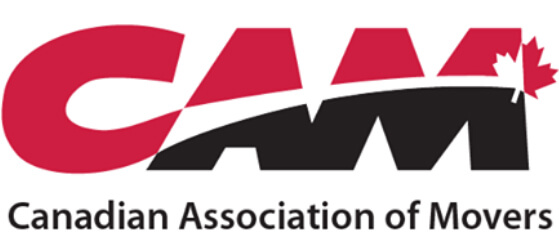Unhappy about your move?
Maybe your move didn't go as well as expected, with lost or damaged goods, late delivery, or a higher cost than quoted. Now you want to file a complaint.
The Canadian Association of Movers (CAM) strongly urges all parties involved in a moving dispute to keep the lines of communication open toward resolving the issue.
Step 1
Before you consider complaining to any authority, the most important step to take is to contact the company that you booked your move with to allow the moving company to address the situation.
You can contact them by phone, email, or letter to outline what your issues are and your desired resolution for the dispute. Your booking agent (the moving company you booked your move with) is your primary contact for questions about your move and any issues you have, including complaints and claims.
For example, if you booked with ABC Movers and XYZ Movers showed up for the move, you must address your issues through ABC. Similarly, if you moved from Ireland to Canada and you booked your move through an Irish company, you must address your issues through the Irish company.
In preparation, be sure that you have your paperwork ready – your contract, bill of lading, receipt, etc. – and you have reviewed it closely, especially the fine print.
Important points to keep in mind before you talk to your mover
- The person who arranged the move is best equipped to have the discussion with the moving company. When that’s not possible, the person’s representative must be provided with as much information as possible.
- Labour demands and supply issues (including shortages in international shipping containers or port strikes) often cause delivery schedule delays or alterations which can result in unexpected temporary storage requirements and additional costs and changes in plans that consumers will have to bear, possibly without any notice.
- Moving companies are not responsible for alterations in transit time as a result of rerouting due to natural disasters, like wildfires and flooding, or traffic delays because of construction or congestion.
- The complaint and claims handling process will take time.
Step 2
If the result of your contact with the mover is still not satisfactory, you can file your complaint with CAM.
CAM's commitment
The Canadian Association of Movers (CAM) is a not-for-profit trade association that represents household goods moving and storage companies in Canada. CAM's members are not rogue or scam operations – they are certified by CAM through an extensive vetting process as reputable, professional moving service-providers. As a trade association:
- CAM is not a government agency so it does not regulate the moving industry, nor does it have the authority to enforce existing regulations set by government authorities.
- CAM does not dispense legal advice so any ideas, concepts, or theories concerning potential legal action should be reviewed by your own legal counsel.
- CAM does not have the authority to order refunds or reimbursements for damages, force a settlement, or demand any type of compensatory payment from your mover.
CAM reviews complaint activity, whether it concerns CAM members or non-CAM members. We understand that feedback from consumers about their moves, particularly bad ones, is important. With this feedback, CAM is able to identify situations and educate our members. We do our part to improve the general quality of moving services in Canada. Our goal is to maintain higher standards of service amongst our members.
If the mover is a CAM member, CAM will:
- share the form (and any additional information you provide) with the CAM member for response and resolution.
- record the complaint.
- as necessary, act as facilitator between you and the CAM member..
- if appropriate, refer the matter to the affiliated van line for response and resolution.
- advise the consumer of action taken and responses received.
If the mover is NOT a CAM member, CAM:
- will NOT contact the mover.
- will record the complaint.
- may recommend a course of action.
- may provide contact information for governmental consumer agencies, the Better Business Bureau or other enforcement agencies.
*you can check to see if the mover is a CAM member by searching CAM's Member Directory.
Do you still wish to file a complaint with CAM? Submit your complaint in writing here.
Other resources are available to you
- the Better Business Bureau - You can file a complaint with the BBB whether the moving company is a member of the BBB or not,
- the government consumer protection agency in the province where the mover is located,
- your local government representative,
- small claims court,
- Pro Bono Services Canada - This is a consumer protection clinic based at Osgoode Hall Law School whereby law students can provide support to victims under a lawyer’s supervision free of charge. The clinic can assist victims with any court process. You just need to send them your telephone number (and maybe a few details) in an email so that a student can follow-up with you: ConsumerProtection.PBSC[at]gmail.com .
- a lawyer, the police, Crime Stoppers, Canadian Anti-Fraud Centre, or
- Canada Revenue Agency, in the case of cash-only transactions or tax-related issues.

